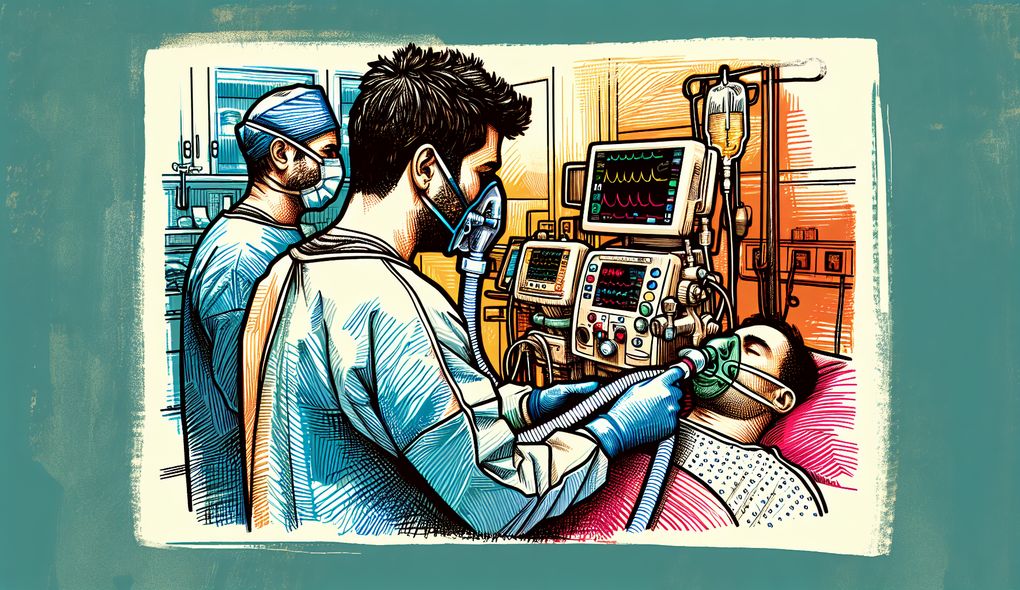What qualities make a successful respiratory therapist?
SENIOR LEVEL

Sample answer to the question:
A successful respiratory therapist should possess strong diagnostic and patient care skills. They should also be proficient with respiratory therapy equipment and techniques. Excellent communication and interpersonal skills are important in order to effectively collaborate with the healthcare team. The ability to work effectively in high-stress environments is crucial, as respiratory therapy often involves emergency situations. Leadership and team management capabilities are also desired, as senior respiratory therapists may be responsible for supervising junior therapists. Being detail-oriented and able to maintain meticulous records is important for accuracy and compliance. Critical thinking and problem-solving abilities are necessary in order to develop and implement effective treatment plans.
Here is a more solid answer:
A successful respiratory therapist possesses strong diagnostic and patient care skills, being able to accurately assess and monitor the breathing status of patients using various diagnostic tests and equipment. They are proficient with respiratory therapy equipment and techniques, designing and delivering complex respiratory therapy treatments and interventions. Excellent communication and interpersonal skills are crucial for effectively collaborating with the healthcare team, including physicians and other professionals, to develop and implement treatment plans. They are able to work effectively in high-stress environments, responding to emergency situations and providing airway management and life support as needed. Leadership and team management capabilities are important for senior respiratory therapists who may supervise junior therapists and provide training and mentorship. Being detail-oriented and maintaining meticulous records is essential for accuracy and compliance with healthcare regulations. Critical thinking and problem-solving abilities are necessary for developing effective treatment plans and contributing to the advancement of best practices in respiratory care.
Why is this a more solid answer?
This is a solid answer because it provides specific details and examples to support each quality of a successful respiratory therapist, demonstrating a clear understanding of the job requirements and responsibilities. However, it could be improved by providing even more specific examples or experiences related to each quality.
An example of a exceptional answer:
A successful respiratory therapist possesses strong diagnostic and patient care skills, accurately assessing and monitoring the breathing status of patients using various diagnostic tests and equipment. For example, they may perform arterial blood gas analysis to measure oxygen and carbon dioxide levels. They are proficient with respiratory therapy equipment and techniques, such as ventilators and nebulizers, designing and delivering complex respiratory therapy treatments and interventions. For instance, they may administer bronchodilators to relieve symptoms of respiratory distress. Excellent communication and interpersonal skills are crucial for effectively collaborating with the healthcare team, including physicians and other professionals, to develop and implement treatment plans. They actively listen to patients' concerns and provide clear instructions for self-care. They are able to work effectively in high-stress environments, remaining calm and focused during emergency situations and providing airway management and life support as needed. Leadership and team management capabilities are important for senior respiratory therapists who may supervise junior therapists and provide training and mentorship. They foster a supportive and collaborative work environment and promote professional development. Being detail-oriented and maintaining meticulous records is essential for accuracy and compliance with healthcare regulations. They meticulously document patient information, treatment plans, and outcomes. Critical thinking and problem-solving abilities are necessary for developing effective treatment plans and contributing to the advancement of best practices in respiratory care. They analyze complex respiratory cases, explore alternative approaches, and stay updated with the latest research and advancements in the field.
Why is this an exceptional answer?
This is an exceptional answer because it provides specific examples and experiences to support each quality of a successful respiratory therapist, demonstrating a deep understanding of the job requirements and responsibilities. The examples and experiences are highly detailed and showcase the candidate's expertise in the field.
How to prepare for this question:
- Review and develop your diagnostic and patient care skills by practicing various diagnostic tests and equipment used in respiratory therapy.
- Stay updated with advancements in respiratory therapy equipment and techniques through continuing education courses and workshops.
- Improve your communication and interpersonal skills by actively listening to patients and practicing clear and effective communication with the healthcare team.
- Gain experience working in high-stress environments by seeking opportunities in emergency departments or critical care settings.
- Develop leadership abilities by seeking opportunities to mentor junior therapists and take on supervisory roles.
- Practice attention to detail in maintaining accurate and confidential patient records.
- Sharpen your critical thinking and problem-solving abilities by actively participating in case discussions and staying updated with research in the field.
- Stay informed about the latest advancements and best practices in respiratory care by attending conferences and engaging in professional networking.
What are interviewers evaluating with this question?
- Diagnostic and patient care skills
- Proficiency with respiratory therapy equipment and techniques
- Communication and interpersonal skills
- Ability to work effectively in high-stress environments
- Leadership and team management capabilities
- Detail-oriented and able to maintain meticulous records
- Critical thinking and problem-solving abilities

